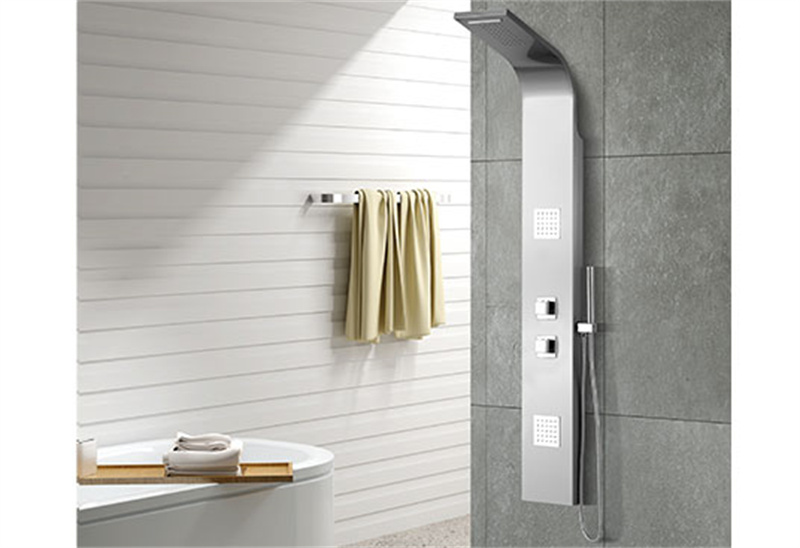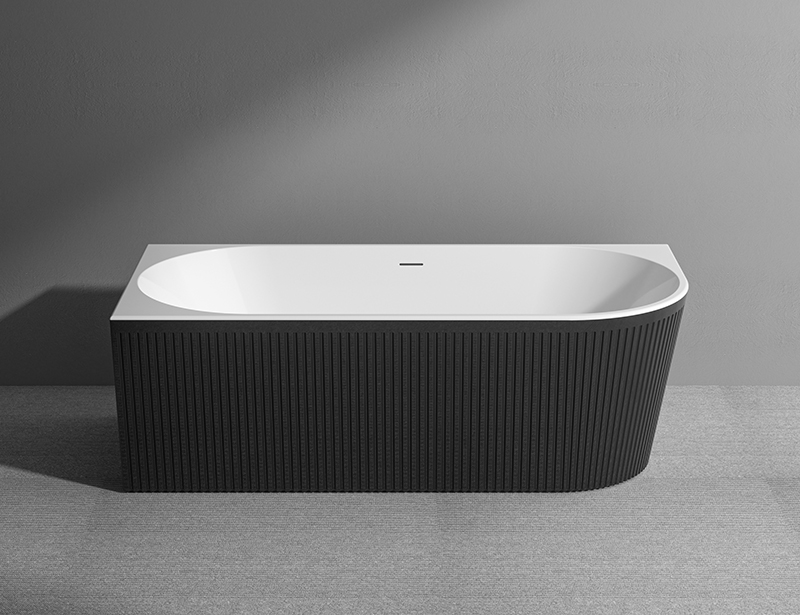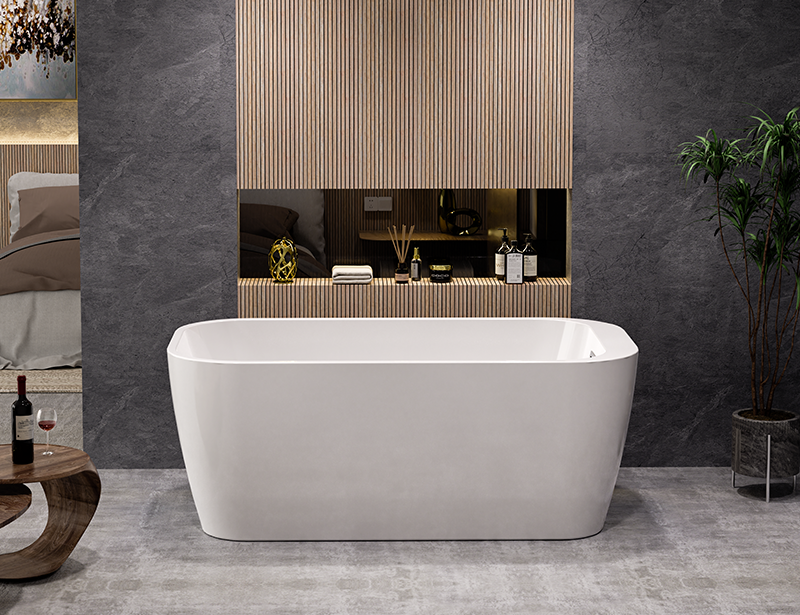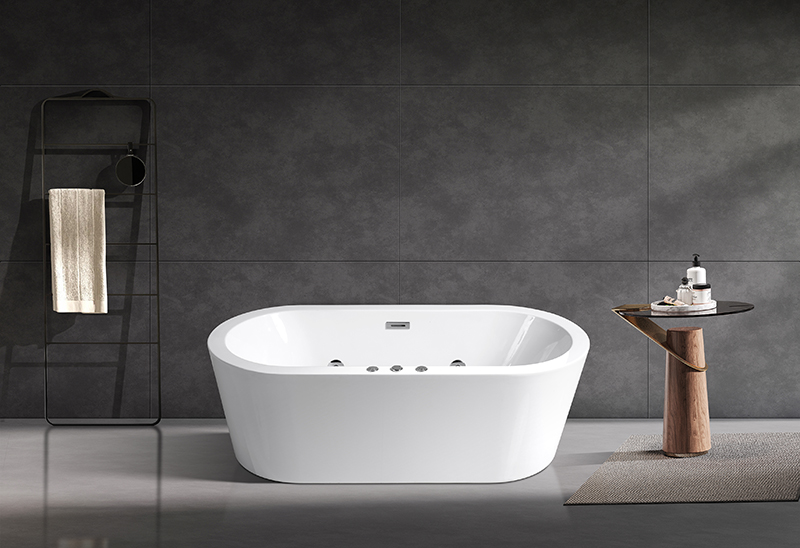67 Inch Acrylic Freestanding Bathtub
Model:MV051D Dimension:66.9X29.5X22.8inch/1700X750...
The bathroom, often seen as a sanctuary within the home, serves as a space for relaxation and rejuvenation. Central to the modern bathroom experience are shower doors, which not only enhance the functionality of the shower area but also contribute significantly to the overall aesthetic of the bathroom. This article delves into the various types of shower doors, their benefits, and the considerations for selecting the perfect shower door for your bathroom.
Shower doors come in a variety of styles, each with its own unique features and benefits. Understanding the different types can help homeowners make an informed decision that suits their needs and preferences.
Sliding Shower Doors: Also known as bypass doors, sliding shower doors consist of two or more panels that slide past each other on tracks. These doors are ideal for bathrooms with limited space, as they do not require extra room to open. They are commonly used in bathtub enclosures and walk-in showers.
Pivot Shower Doors: Pivot doors, or swinging doors, operate on a hinge mechanism that allows the door to swing open, either inward, outward, or both. These doors are best suited for larger bathrooms where there is enough space for the door to swing without obstruction.

Bi-Fold Shower Doors: Bi-fold doors consist of panels that fold in on themselves, similar to a concertina. These doors are an excellent option for small bathrooms where space is at a premium, as they offer a wider entry without requiring significant room to open.
Frameless Shower Doors: Frameless shower doors are made of thick, tempered glass and lack the metal framing found in other types. They offer a sleek, modern look and create an illusion of space due to their minimalistic design. Frameless doors can be customized to fit various shower shapes and sizes.
Framed Shower Doors: In contrast to frameless doors, framed shower doors are supported by metal frames, providing additional stability and strength. These doors are typically more affordable and come in a range of styles and finishes.
Curved Shower Doors: Curved doors are designed for corner showers, featuring a curved glass panel that maximizes the use of space while adding a touch of elegance to the bathroom. They can be either sliding or hinged.
Aesthetic Appeal: Shower doors significantly enhance the visual appeal of a bathroom. Frameless doors, in particular, provide a modern, clean look that can make a small bathroom appear larger. The variety of finishes and styles available allows homeowners to choose a door that complements their bathroom decor.
Functionality: Shower doors are highly functional, preventing water from splashing out of the shower area and onto the bathroom floor. This containment helps maintain a clean and dry bathroom environment, reducing the risk of slips and falls.
Durability: Quality shower doors are built to last, with materials such as tempered glass and corrosion-resistant hardware ensuring long-term performance. Frameless doors, though more expensive, offer durability and resistance to mold and mildew buildup.
Ease of Cleaning: Shower doors are generally easier to clean compared to shower curtains, which can harbor mold and mildew. Glass doors can be wiped down with a squeegee or glass cleaner, maintaining their clarity and shine.
Increased Home Value: Upgrading to stylish and functional shower doors can enhance the overall value of a home. Prospective buyers often view a well-designed bathroom as a major selling point, making the investment in quality shower doors worthwhile.
Considerations for Choosing Shower Doors
When selecting shower doors, there are several factors to consider to ensure they meet both functional and aesthetic needs.
Bathroom Size and Layout: The size and layout of the bathroom play a crucial role in determining the most suitable type of shower door. Sliding doors are ideal for smaller spaces, while pivot or hinged doors require more room to open.
Glass Type and Thickness: The type and thickness of glass used in shower doors impact their durability and safety. Tempered glass is the standard for shower doors due to its strength and safety features. The thickness of the glass typically ranges from 3/8 inch to 1/2 inch, with thicker glass providing more stability and a higher-end look.
Frame vs. Frameless: Deciding between framed and frameless doors depends on budget, aesthetic preference, and maintenance considerations. Frameless doors offer a sleek, modern appearance but are generally more expensive and may require more frequent cleaning to maintain their pristine look.
Hardware and Finishes: The choice of hardware and finishes, such as handles, hinges, and brackets, can enhance the overall design of the shower door. Options range from polished chrome and brushed nickel to oil-rubbed bronze and matte black, allowing for customization to match the bathroom decor.
Installation and Maintenance: Professional installation is recommended for shower doors to ensure proper fit and function. Additionally, considering the maintenance requirements, such as the ease of cleaning and the potential for water spots or mineral buildup, is important for long-term satisfaction.
Shower doors have become a quintessential element of modern bathroom design, offering both aesthetic and functional benefits. The variety of styles, from sliding and pivot to frameless and curved, provides homeowners with numerous options to suit their space and preferences. By considering factors such as bathroom size, glass type, and hardware finishes, homeowners can select the perfect shower door to enhance their bathroom experience. Investing in quality shower doors not only elevates the bathroom's appearance but also contributes to the overall value and enjoyment of the home.

Model:MV051D Dimension:66.9X29.5X22.8inch/1700X750...

Model:A1800K-F 70X70X185(cm)80X80X185(cm)90X90X185...

Modell: MV-X193 Abmessung: 1600 * 200 (mm) Materia...

Model:MV-G8005A Dimention:1500X200(mm) Material:St...

Model: A2721 80*80*190(cm) 90*90*190(cm) Profile m...

Model: MV091D Dimension: 59.1X29.5X22.8 inch / 150...

Model: MV096D Dimension: 59.1X31.5X22.8 inch / 150...

Model:MV069D-1 White Dimension: 67X31.5X22.8 inch ...